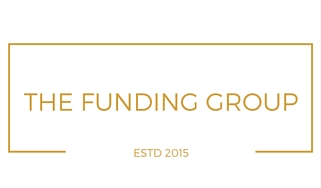Although the low mortgage rates for the last year have provided some financial relief to homeowners in hot housing markets, that trend is unlikely to continue into 2022.
The mortgage rates have risen steadily from 2.67% in January 2021, to 3.12% mid-December. According to data from Freddie Mac, they have remained within the historic low 3% range all year.
As we enter the new year, however, mortgage rates face serious challenges. These include skyward inflation and plans by the Federal Reserve to raise the federal funds rate and reduce asset purchases. All of these could lead to higher mortgage rates.
The consumer price index (CPI), which measures inflation by looking at consumer goods, increased 6.8% in the 12-months ended November. This is the largest jump in a single-year period since June 1982.
For 2022, Mortgage Rates to Expect
Many housing experts believe that inflation and Fed’s acceleration of asset-purchase tapering are sure signs of higher mortgage rates. These rates will range from the upper 3% to the upper 4% by 2022. Here are some predictions by market experts.
- Michael Fratantoni (chief economist at the Mortgage Bankers Association) says rates could reach 4.4% by 2022.
- Lawren Yun (chief economist, National Association of Realtors) predicts that mortgage rates will reach 3.7%.
- CoreLogic’s deputy chief economist, Selma Hepp predicts that rates will rise to 3.4%.
Other are looking at Treasury yields as a sign that rates might not rise as widely expected.
Mortgage rates are closely linked to the 10-year Treasury yield. While the yield is unlikely to rise in the next year, it is possible for mortgage rates to rise, but they will likely remain below 3.5%.
Also, rates are expected to rise by about half a point to 3.6% by 2022. This is a jump that “not large enough to disrupt market.”
The rates have been so low that it may be surprising to some, but 3.6% in 2019 was a record low.
There are some unexpected events, such as another significant increase in the Covid-19 variant. If it causes the economy’s retreat, mortgage rates could flatten or drop.
Recent concerns about new COVID variants, and their potential impact on economic activity, continue to create uncertainty. This could cause rates to remain subdued.
Even with anticipated increases, the environment for homebuyers and refinancers will be favorable.
Is it a good time to refinance now?
The number of borrowers refinancing mortgages has declined as rates continue rising. Black Knight, an analytics firm that specializes in real estate data, reported that the market’s overall refinance share was at 45% as of October. This is the lowest level since June 2021.
Refinance may not be an option for many who have just purchased a home in the past few years, as rates are expected to rise once again in 2022.
It’s not possible to predict the market. However, homeowners who are able to reduce their interest rates by refinancing may want to move sooner than others.
Refinancing can result in a lower monthly repayment, but not all options will pay less over the loan’s life. You will pay more than $13,000 if you go from a 5% rate mortgage with 26 years remaining to a 4.4% rate mortgage with 30 years.
You can save money by using a mortgage calculator before you begin looking for a Beverly Hills Mortgage broker.
It is also important to think about how long you intend on staying in your house. If you decide to sell your home soon after refinance, the closing costs could eat into your savings. You will need to plan to keep your home for as long as possible to pay the closing costs of refinance. They can vary from 2% to 5% depending on the Beverly Hills Mortgage Broker.
Remember that your eligibility for depends on many factors, including credit score, debt to income (DTI), loan-to value (LTV), and steady income.

